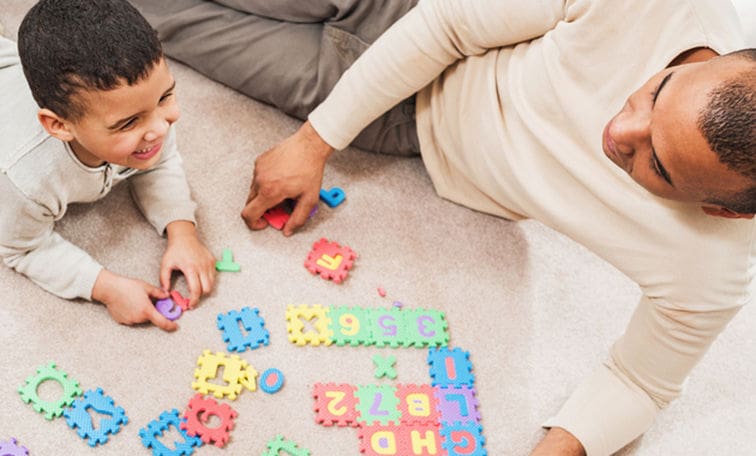
As the parent of an energetic kindergartner, no doubt you’re looking for ways to keep your child in “learning mode” all the time. During this phase of your child’s life, their cognitive and mental faculties are growing at an astounding rate, and the more you can feed their hungry mind using creative and engaging methods, the more they can succeed in the classroom. The following learning games and activities – both offline and online – will give your kindergartner plenty of “brain exercise” to help further foster the all-important process of mental and cognitive development.
Offline Learning Games and Activities
* Sorting Beans – This low-tech but high-engagement activity will help your child develop basic math skills such as adding, counting and pattern recognition. All you need is a bag of mixed beans and some graph paper (in 1-inch squares). Lay out the sheet of paper onto a flat surface and ask your child to group the beans according to size, shape or color, using one bean per square. Ask questions to test their understanding of the concept, such as “Which group has the most beans?” You can also have your child arrange the beans in a pattern that repeats.
* Counting Coins – Now you can do something with money other than saying “goodbye” to it! Try giving your child a small number of coins to work with at first, such as 20 pennies, five nickels and five dimes. Explain how to count by ones, fives and tens using the pennies, nickels and dimes. This will help your child build on his/her basic counting skills, and it will expand their understanding of important fundamental math concepts.
* Go for a Shape Walk – As your kindergartner begins to master their understanding of basic shapes, you can take him/her on a “shape walk,” where you observe how various circles, triangles, squares, rectangles, etc., can be found in your everyday environment. Use a pencil and a clipboard to write the shapes down as you see them (e.g., a door is a rectangle, a basketball is a circle, etc.), and then discuss them with your child when the walk is finished. This will create a connection between the shapes your child is learning about in the classroom with the shapes they see in the world around them.
* Put Puzzles Together – Something as simple as putting a jigsaw puzzle together can develop your child’s problem-solving and deductive reasoning skills. And it doesn’t have to be only jigsaw puzzles, either – practically anything that can be assembled (e.g., a basic Lego set, etc.) can serve this purpose equally as well.
Online Learning Games and Activities
We are living in a digital age, and thankfully there are thousands of amazing resources online to help your child learn important fundamental concepts in a fun and highly engaging way.
* PBS Kids is an outstanding resource for problem-solving games, science games, nature games, animal games, ABC games and other fun topics. The big plus to this site is that the games utilize characters from many of the most popular TV shows on PBS Kids, including Wild Kratts, Caillou, Curious George, and Clifford the Big Red Dog.
When you have a kindergartner, you quickly recognize that each new day provides new learning opportunities for your little one. Use the resources outlined above to position your child for success in the kindergarten classroom and beyond!

